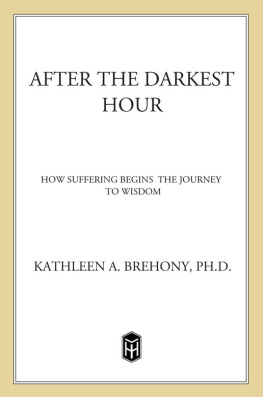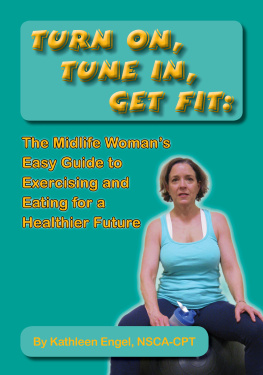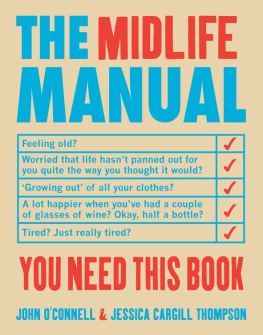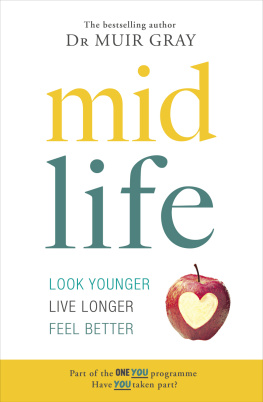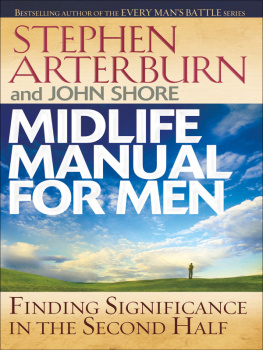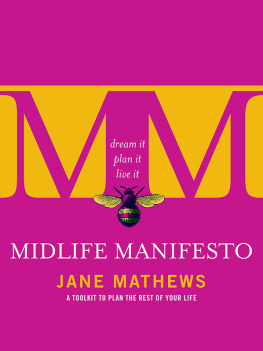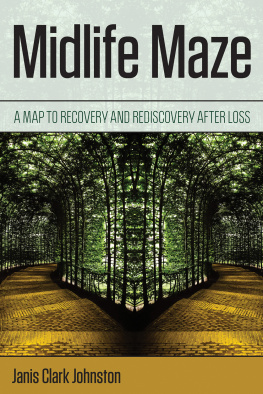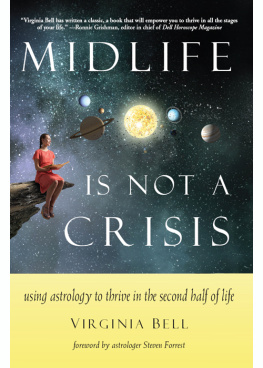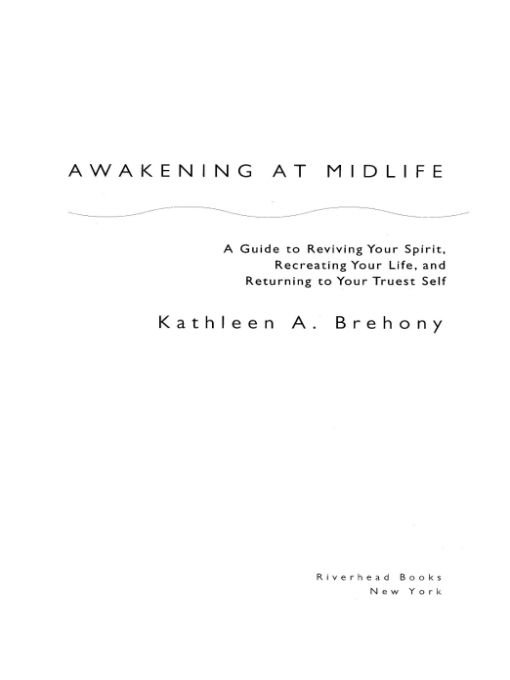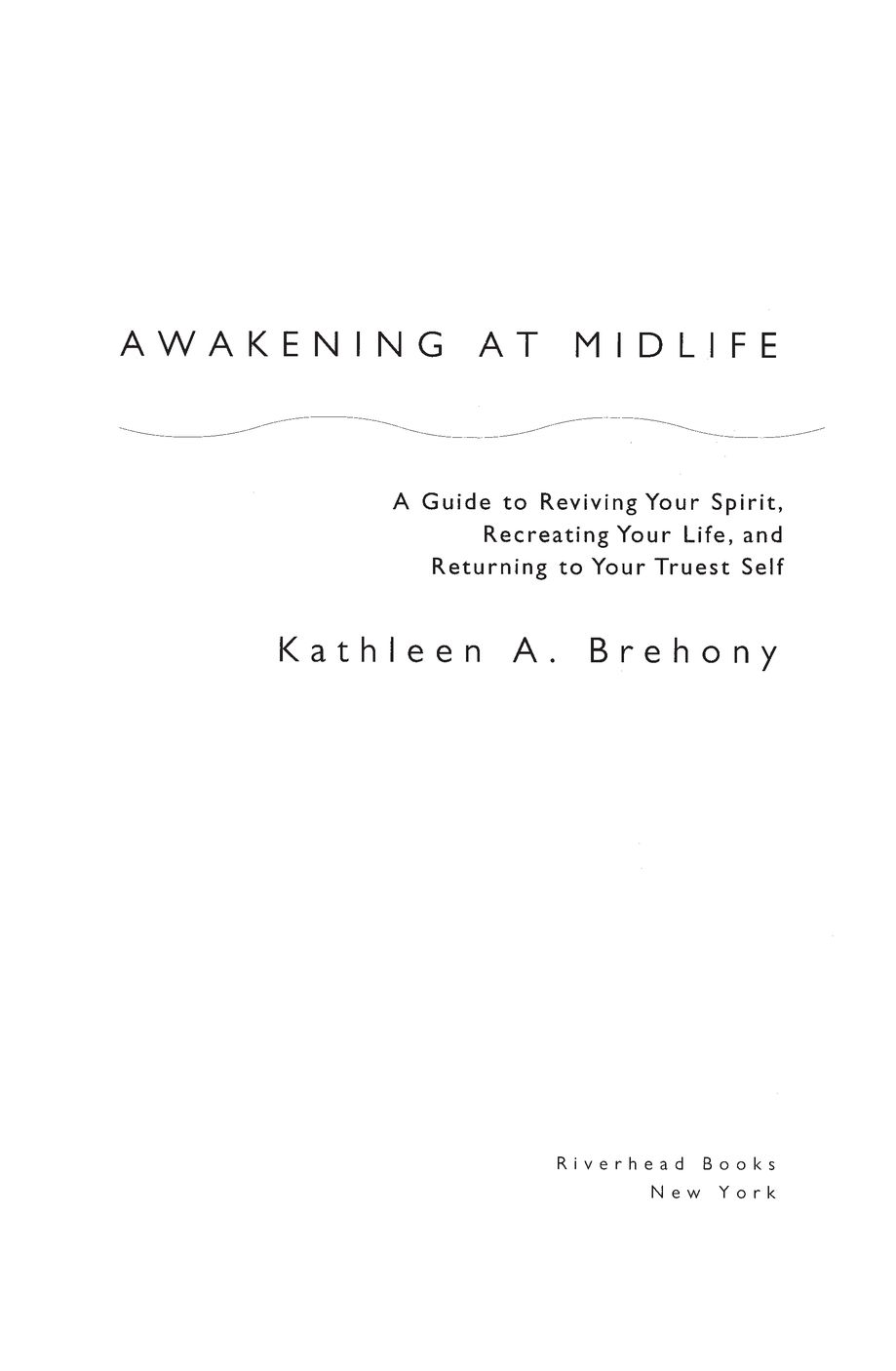Table of Contents
Brehony, a Jungian psychologist, defines, explains, and connects Jungian concepts such as personal and collective unconscious, persona, shadow, and archetypes into an understandable but not reductive framework... with exercises to strengthen various aspects of development, including the importance of dreams, creativity, prayer and meditation... A relatively challenging exploration of the aspects of change at midlife, including spiritual and physical growth.
Kirkus Reviews
ALSO BY KATHLEEN A. BREHONY
Ordinary Grace: Lessons from Those Who Help Others in Extraordinary Ways
THIS BOOK IS LOVINGLY DEDICATED TO
My father, Jim, who shows me everything there is to know
about courage and celebrating the sacred in every living being,
and
My mother, Mary, who loved me unconditionally
and taught me to always say a Hail Mary
at the sound of an ambulance.
CHAPTER 1
Introduction : The Challenge of Midlife
Midway upon the journey of my life I found myself in a dark wood, where the right way was lost.
DANTE ALIGHIERI, THE DIVINE COMEDY, c. 1313
THE AMERICAN POPULATION is becoming middle-aged. There are now 81 million baby boomers (those born between 1945 and 1965) in this country. In 1992 nearly 3 million Americans turned fifty. We are aging, like it or not, and many people will be experiencing the midlife passage. The profound changes that accompany this developmental transition will affect us deeply both individually and collectively.
In spite of the great number of people entering or entrenched in midlife, very little attention has been paid to it, compared with other major areas of the life cycle. A great deal has been written about the developmental stages of childhood, for example, and thanks to Dr. Spock and others, it is possible for new parents to read about and understand the changes expected in their infant and toddler on an almost week-by-week basis. Adolescence, too, has been the subject of a great deal of research and writing. But the cultural assumption is that once we hit the age of twenty-one and become adults there are no more real changes left to come. We are grown-upfinished and complete. Gail Sheehy, the author of Passages, one of the first popular books about adult development, writes, Studies of child development have plotted every nuance of growth and given us comforting labels such as the Terrible Twos and the Noisy Nines. Adolescence has been so carefully deciphered, most of the fun of being impossible has been taken out of it. But after meticulously documenting our periods of personality development up to the age of 18 or 20nothing. Beyond the age of 21, apart from medical people who are interested only in our gradual physical decay, we are left to fend for ourselves on the way downstream to senescence, at which point we are picked up again by gerontologists.
This cultural belief, that there are few changes expected in adulthood, is a dangerous one. It allows us to deny that we will have to make adjustments throughout our life and that these changes will often occur at times when we think we are stable and secure. In fact, many of us prefer to think of the confusion associated with midlife as something that happens to other people or to characters in movies, not to us. Were not going to have an affair or fall in love with someone new. Were not going to fall apart at this late stage of the game. Were going to be perfectly content in our career until we retire. We know who we are and what we want for the rest of our lives.
If we do admit to any trouble, we tend to oversimplify problems; hence the stereotyped notion that midlife for men is only about affairs with younger women or that for women it always involves the loss of the mothering role (e.g., the empty nest syndrome). But at midlife the underlying, often unconscious psychological issues that are straining to emerge, the search for wholeness that occurs at this time, and the frequent confrontation of ones own and others mortality are not so simple, nor are they restricted by gender, class, education, or any other demographic variable. The midlife transition is a deeply human experience. Some of us may drift into it unconsciously, barely noticing the effects, while others of us will feel as if weve been knocked over the head with a two-by-four. But all of us will be confronted by the profound and inevitable developmental realities of this time of life.
The opening lines of Dantes The Divine Comedy, Midway upon the journey of my life I found myself in a dark wood, where the right way was lost, summarize the feelings of many people at midlife. Americans today are healthier and live longer than any previous generation. Many of us believe the advertising slogan Youre not getting older, youre getting better, and one has only to look at women and men in their forties, fifties, and beyondstill fit, beautiful, and vibrantto know that there is truth in this idea. But in spite of our increased life span and enhanced physical fitness, to many people midlife still feels like being lost in the woods.
Most people experience some physical, relational, professional, or psychological changes during their middle years, often in the form of an unhappy marriage, affairs, or divorce; anxiety that may have no clear source; depression; dissatisfaction with career or job; disillusionment; or despair. Some will experience these symptoms at a very intense level, as a true midlife crisis; others may avoid a full-blown crisis but nonetheless will notice a subtle shifting of attitudes, feelings, or behaviors. Many people simply refer to an emptiness that is both deep and inexplicable.
Questions of personal identity often arise at this time. Values and goals that have never been questioned are now subject to internal debate. Spiritual questions, often long ignored, rise to the surface of consciousness. At midlife we begin, perhaps for the first time, to contemplate death. As a result, for many the time of midlife transition is fraught with fear and doubt.
Like so many others, I was very much in denial about the changes of midlife. Even though I had worked as a therapist for many years and had read a great deal about change, development, and human psychology, I was as unprepared as anyone Ive ever known for the dramatic transformation that I experienced. My fortieth birthday found me surrounded by good friends of many years, black over the hill balloons, and lots of food and music. Forty, like thirty-nine or thirty, seemed like just another great time with my friends. Being children of the sixties, we laughed about how we used to say, Never trust anyone over thirtyhere I was passing that benchmark by a decade. But I had been having vague and indescribable feelings for at least a year. I was not clinically depressed, but I hadnt felt like myself for a long time either. Several weeks before my birthday I had noticed an odd sensation in my chest. It wasnt pain, just a funny feeling. I went to the doctor and had an EKG, which revealed no problems at all. Youll probably live to be a hundred, the doctor had said.
Within a month after my fortieth birthday party my life had changed dramatically. I fell in love with someone new and left a long-term relationship with a very good person whom I also loved. I was in a tremendous crisis about my conflicting feelings. I lost a job that was emotionally and professionally unsatisfying to me but provided a good income. The loss of my salary intensified a precarious financial situation that had resulted from a major business reversal, and I found myself economically devastated yet with a hefty mortgage on a house I had recently purchased. Having been accustomed to a great deal of ease and success in my life, I felt like a complete failure. The ground was slipping out from under me and I felt cut loose in space. I couldnt get to sleep at night and when I finally drifted off I would wake every hour or so with a vague sense of dread and fear. Food seemed to stick in my throat. Sometimes when I looked in a mirror I could barely recognize the reflection as my own. I knew I was seeing myself, but it just didnt seem like me. I was empty, hopeless, anxious, and without any sense of direction. The worst part was that I felt totally crazy and very alone.


